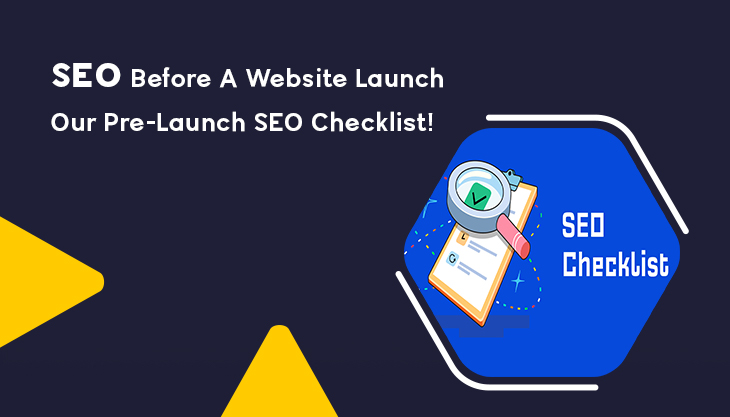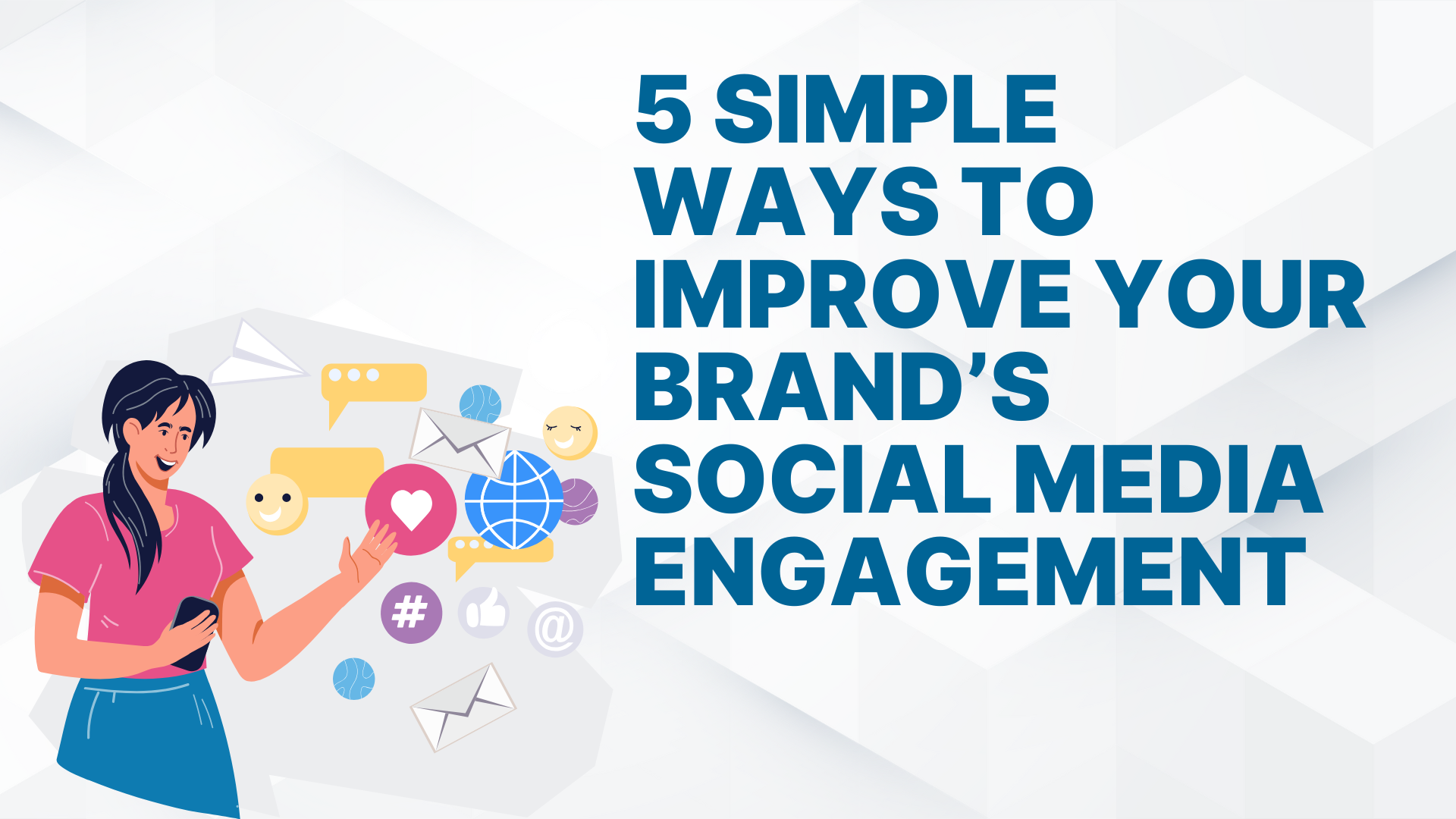So, you're all set to launch your brand-new website. But are you truly prepared? Most likely not. Before you release that new website to the world, including the search engine crawlers, there are a few things you should think about.
These ideas can help you succeed if you're trying to get your website to rank in the search engines on your own or with the help of a pro (highly recommended).
Let’s Look at Our Pre-launch SEO Checklist to Get You Prepared
1. Verify that all of the site's URLs are active and working properly
A website is frequently constructed on a dedicated staging platform, where items may be tested in a variety of ways. It's time to deploy the site to production and modify all of the URLs after the functionality and content are complete. However, this does not always go as planned.
If you have a modest corporate website with a few landing pages organised into a few divisions, you may manually test it by adding live URLs one by one to ensure that the links operate properly. When it comes to larger websites, however, the URL check must be automated.
2. The speed of your website
Customers are irritated by lagging and slow websites, and they may abandon your site in rage, never to return. Customers visiting your website and then leaving sends a red flag to search engines like Google, indicating high bounce rates - this is a major problem.
If a web page takes longer than three seconds to load, visitors are likely to abandon it. Reduce the number of images and text on the website to reduce loading times.
Check that your website can handle a high volume of traffic, especially if you anticipate a large number of visitors during the launch.
3. Is the site mobile-friendly?
As more people use their phones and other electronic devices to access the internet, making sure your website is mobile-friendly is critical. It not only keeps your consumers happy, but it also helps Google rank pages based on their mobile experience.
Not only can mobile searches help with search rankings, but they also lead to more transactions. People are buying more from their phones than from their computers, and the process is becoming more efficient.
4. Validate your CSS and code
Although Google claims that some HTML/CSS problems won't affect your site's rankings, I'd still recommend double-checking your code. Online tools like the W3C Markup Validator and W3C CSS Validator, as well as desktop ones like WebSite Auditor, can be used to check pages for flaws.
Go to WebSite Auditor's Site Audit dashboard and click on Pages with W3C HTML errors and warnings and Pages with W3C CSS errors and warnings to see a list of pages with W3C faults. In the right-hand corner of your screen, you'll find a list of pages with errors.
5. Look for faults with indexation
If you could only undertake one technical SEO activity before publishing your website, it should, in my opinion, be to ensure that crawlers can readily reach your pages and content.
Go to WebSite Auditor and perform the following steps to discover if any pages are banned from indexing:
1. Check the Enable expert options box on the first step of the project creation/rebuild.
2. Uncheck the box that says "Follow robots.txt instructions" in Step 2 and then click Next.
3. After the crawl is finished, go to Resources blocked from indexing to check which parts of your site are not crawlable by search engines. Make sure that none of your site's critical pages or resources (such CSS and JavaScript) are mentioned there.
6. Look for difficulties with duplicates.
Duplicate content is problematic and comes in a variety of forms. Your site may suffer from squandered crawl money, link dilution, and poorer ranks, regardless of what creates a duplicate issue. Nobody wants to fall into that trap, so let's look at what you can do to make your new website more secure.
a. Select your domain's desired version (www or non-www)
If you don't specify which version of your website you prefer, search engines may crawl and index many URLs with the same content. In Site Audit, Fixed www and non-www versions, WebSite Auditor will tell you whether you need to address this.
b. Stay away from scraped content
Now, let me speak with the owners of ecommerce websites first! I understand how difficult it is to come up with unique product descriptions for thousands of items and pages, but that is precisely what you should do. Even if some elements of the information (technical parameters, size data, etc.) will be duplicated across various websites, the majority of your description must be original.
c. Meta tags should not be duplicated
Make sure you're not utilising identical meta title and meta description tags for hundreds of pages in your CMS settings.
In the Site Audit module, look for duplicate meta tags under Duplicate titles and Duplicate meta descriptions.
If you have material on your website that may be found at numerous URLs, you should canonicalize it for search engines using either the rel=canonical property or a 301 redirect.
7. Make sure the URLs are optimised for search engines.
Check to see if your site's URLs are cleanly coded; dynamic URLs and large URLs should be avoided. These URL warnings can be seen in Site Audit, URLs.
In addition, the tool allows you to examine the site's structure. This manner, you may optimise your folders to ensure that they reflect the themes and structure of your material. Simply click Rebuild the Project after making the necessary modifications to have the website crawled again.
8. Install Google Analytics and sign up for a Search Console account.
Set up Google Analytics tracking for your website before it goes live - you shouldn't put it off because you'll likely forget about it afterwards and lose a lot of data. Please keep in mind that the tracking code placement may differ depending on your CMS settings.
Sign into Google Analytics, go to Admin, Property settings, and select the Adjust Search Console button to integrate your Google Search console data with your Google Analytics account.
Finally, set up conversion goals by logging into your Google Analytics account, going to the Conversions module, selecting Goals, and clicking the Set up goals option. You'll then fill up the information for your conversion pages.
9. Make a keyword map for your website.
Keyword research is the foundation for all of your subsequent SEO efforts, and you might spend hours upon hours creating and refining keyword lists. At this point, I recommend making a keyword map for your most critical pages, such as your homepage and category pages.
So, when you've done some preliminary keyword research, go over your site's structure again and map your keywords to the landing pages.
What is the purpose of this keyword map?
* It will simplify your on-page optimization efforts.
* It will be simpler to monitor the performance of pages arranged around specific topics.
* It will assist in ensuring that all of the most critical pages target the required keywords.
* Your content creators and editors will benefit from it.
10. To mark up the material, use schema.
The addition of schema markup is a completely technical SEO tip. It explains what your data represents to search engines and assists them in representing it in a more user-friendly manner. You can tell search engines a lot more about your content by using the microdata language.
Should You Hire a Web Development Company?
A Website Development Company will assist you in developing an app and/or website by doing the following tasks:
1. The framework, architecture, and navigation were all conceptualised and then frozen.
2. Choosing a programming language for your website and app (HTML, PHP, JavaScript, ASP, etc.)
3. Back-end coding and programming
4. Including video, visual, and audio elements in the mix
5. Publishing and optimising content in accordance with best practises
6. At the front end, I'm working on designing the User Interface and User Experience.
7. Before launching the website and app, it must be thoroughly tested (beta testing)
8. Identifying and resolving issues
9. Carrying out speed and performance tests
10. Putting codes in place and going live
11. Regularly maintaining and updating this online real estate
So, why should you hire an SEO firm? What is the significance of SEO for your company's website?
With so many other budgeting problems to consider for online firms, search optimization may be thrown to the back burner. Balancing efforts across many channels, in particular for online firms, requires determining which ones provide the highest benefits and deciding how to improve on them — for everything from social networking to paid advertising to email outreach and more.
When you consider the time and effort involved, as well as the fact that the nature of search engines frequently makes it feel like a guessing game, the benefits of employing an SEO company may not be as obvious.

















Post Comments